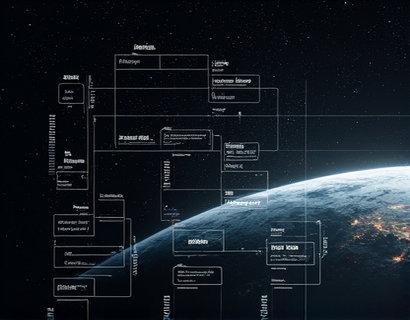AI-Driven Care Solutions for Virtual Entity Management: Enhancing Digital Caretaking with Advanced Technology
The advent of virtual entities has opened new frontiers in digital caretaking, presenting unique challenges and opportunities for developers and caretakers. As virtual creatures and entities become increasingly sophisticated, the need for advanced care solutions that ensure their optimal performance and well-being has become paramount. This article delves into a groundbreaking AI-driven approach to virtual entity care, leveraging cutting-edge algorithms to revolutionize the way we manage and nurture digital beings in the virtual world.
The integration of artificial intelligence in virtual entity management is not just a novel concept but a necessity in today's digital landscape. Traditional methods of caretaking often fall short when dealing with the complexities and dynamic nature of virtual entities. AI-driven care solutions offer a more adaptive, efficient, and effective way to monitor, maintain, and enhance the well-being of these digital creatures. By harnessing the power of machine learning and advanced analytics, these solutions can predict and respond to the needs of virtual entities in real-time, ensuring they operate at peak performance.
One of the key advantages of AI-driven care solutions is their ability to process and analyze vast amounts of data quickly and accurately. Virtual entities generate a continuous stream of data related to their behavior, health, and environment. AI algorithms can sift through this data to identify patterns, detect anomalies, and make informed decisions that optimize the entity's performance. For instance, AI can monitor a virtual creature's energy levels, adjusting its activities to prevent overexertion and ensure longevity. This level of precision and responsiveness is unmatched by traditional care methods.
Moreover, AI-driven care solutions can significantly reduce the workload for human caretakers. In the realm of virtual entity management, caretakers often face the daunting task of overseeing multiple entities, each with its own set of requirements and behaviors. AI can automate routine tasks such as health checks, environment adjustments, and activity scheduling, freeing up caretakers to focus on more complex and creative aspects of digital care. This not only improves efficiency but also enhances the overall quality of care provided to virtual entities.
Another critical aspect of AI-driven care is its ability to learn and adapt over time. Machine learning algorithms can continuously improve their performance based on feedback and new data. This means that as more interactions and experiences are logged, the AI becomes better at predicting and addressing the needs of virtual entities. For example, an AI system can learn from past incidents where a virtual creature showed signs of distress and proactively implement preventive measures to avoid similar situations in the future. This proactive approach to care is essential for maintaining the health and happiness of digital beings.
In addition to performance optimization and workload reduction, AI-driven care solutions can also enhance the emotional and social well-being of virtual entities. Emotional intelligence is a crucial component of advanced AI systems, enabling them to recognize and respond to the emotional states of virtual creatures. By simulating empathy and understanding, AI can create more meaningful and engaging interactions between virtual entities and their human counterparts or other digital beings. This emotional connection is vital for the holistic well-being of virtual entities, making their experiences more enriching and fulfilling.
The application of AI in virtual entity care extends beyond individual entities to entire virtual ecosystems. In multi-entity environments, AI can manage complex interactions and dynamics, ensuring a balanced and harmonious community. For instance, AI can monitor social interactions among virtual creatures, intervening when necessary to prevent conflicts or promote positive relationships. This level of ecosystem management is particularly important in virtual worlds where the social fabric plays a significant role in the overall experience.
Furthermore, AI-driven care solutions can integrate seamlessly with existing virtual platforms and tools, enhancing compatibility and interoperability. This is crucial for developers who aim to create comprehensive and cohesive virtual environments. By standardizing care protocols and data formats, AI can facilitate smoother interactions between different systems and entities, reducing technical barriers and fostering innovation. This integration also allows for the sharing of best practices and insights across the industry, driving collective progress in virtual entity care.
The benefits of AI-driven care solutions are not limited to virtual entities alone. For developers and caretakers, these solutions offer valuable insights and tools that can inform and improve their work. Data-driven insights gained from AI analytics can help developers refine their designs and algorithms, leading to more robust and engaging virtual creatures. Caretakers can use AI-generated reports and recommendations to fine-tune their care strategies, ensuring they provide the best possible support to the entities in their charge. This symbiotic relationship between AI and human caretakers enhances the overall effectiveness of virtual entity management.
Looking ahead, the future of AI-driven care solutions in virtual entity management holds immense potential. As AI technology continues to advance, we can expect even more sophisticated and intuitive care systems. The integration of augmented reality and virtual reality technologies will further enrich the care experience, allowing for more immersive and interactive care scenarios. Additionally, the development of more advanced natural language processing capabilities will enable AI to understand and respond to more complex commands and emotions, deepening the connection between humans and virtual entities.
In conclusion, AI-driven care solutions represent a significant leap forward in the field of virtual entity management. By leveraging advanced algorithms and machine learning, these solutions offer unparalleled levels of performance optimization, workload reduction, and emotional well-being for virtual creatures. For developers and caretakers, AI provides powerful tools and insights that enhance their ability to create and maintain thriving virtual ecosystems. As the digital landscape continues to evolve, AI-driven care will play an increasingly vital role in shaping the future of virtual entity care.











































